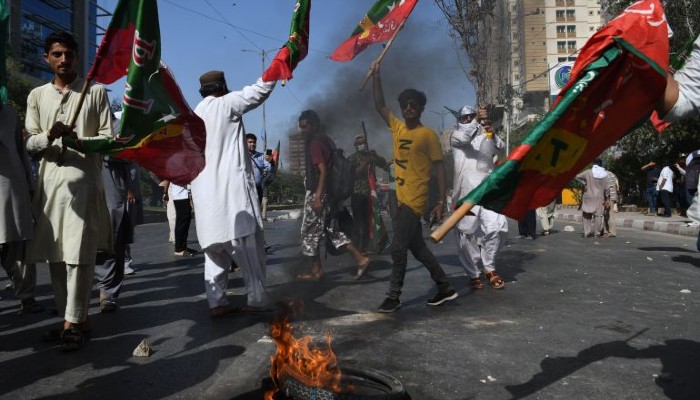 |
| Former Pakistani PM Imran Khan Arrested in Al-Qadir Trust Corruption Case |
Imran Khan, the former Prime Minister of Pakistan and current Chairman of the Pakistan Tehreek-e-Insaf (PTI) party, was arrested on May 10, 2023. The arrest was made by the National Accountability Bureau (NAB) and is related to corruption allegations involving the Al-Qadir Trust.
Khan has been a vocal critic of corruption in Pakistan and has made it a key issue in his political campaigns. He has accused the political elite of siphoning off public funds for personal gain and has promised to root out corruption if he comes to power.
However, his own party has been dogged by corruption allegations. The Al-Qadir Trust case is one of several cases that have been brought against PTI officials in recent years. The case alleges that the party misused funds donated to the trust, which is a charitable organization that provides education, health care, and other services to the poor in Pakistan.
Khan's arrest has caused a wave of political turmoil in Pakistan. His supporters have taken to the streets to protest, and there have been violent clashes with security forces. The situation has raised concerns about the stability of the country and the potential for further unrest.
On May 11, 2023, Khan was brought before the Supreme Court of Pakistan to plead against his arrest in the Al-Qadir Trust case. The plea hearing was attended by a three-member bench comprising Chief Justice of Pakistan Umar Ata Bandial, Justice Muhammad Ali Mazhar, and Justice Athar Minallah.
Khan's legal team argued that his arrest was politically motivated and was intended to undermine his anti-corruption campaign. They claimed that the charges against him were baseless and that he had been targeted because he posed a threat to the status quo in Pakistan.
The prosecution, on the other hand, argued that there was sufficient evidence to support the charges against Khan and that his arrest was necessary to ensure that he did not interfere with the investigation.
After hearing arguments from both sides, the Supreme Court reserved its judgment on Khan's plea against his arrest. The judgment is expected to be delivered in the coming days.
The arrest of Imran Khan has highlighted the deep-seated problem of corruption in Pakistan. It has also raised questions about the ability of the country's political system to address the issue. The situation is likely to remain volatile in the coming days, as Khan's supporters continue to protest and call for his release.
In conclusion, the arrest of Imran Khan is a significant development in the ongoing battle against corruption in Pakistan. Whether his arrest will lead to greater transparency and accountability in the country remains to be seen. However, one thing is certain: the political turmoil in Pakistan is far from over, and the road ahead will be fraught with challenges and uncertainties.
Comments
Post a Comment